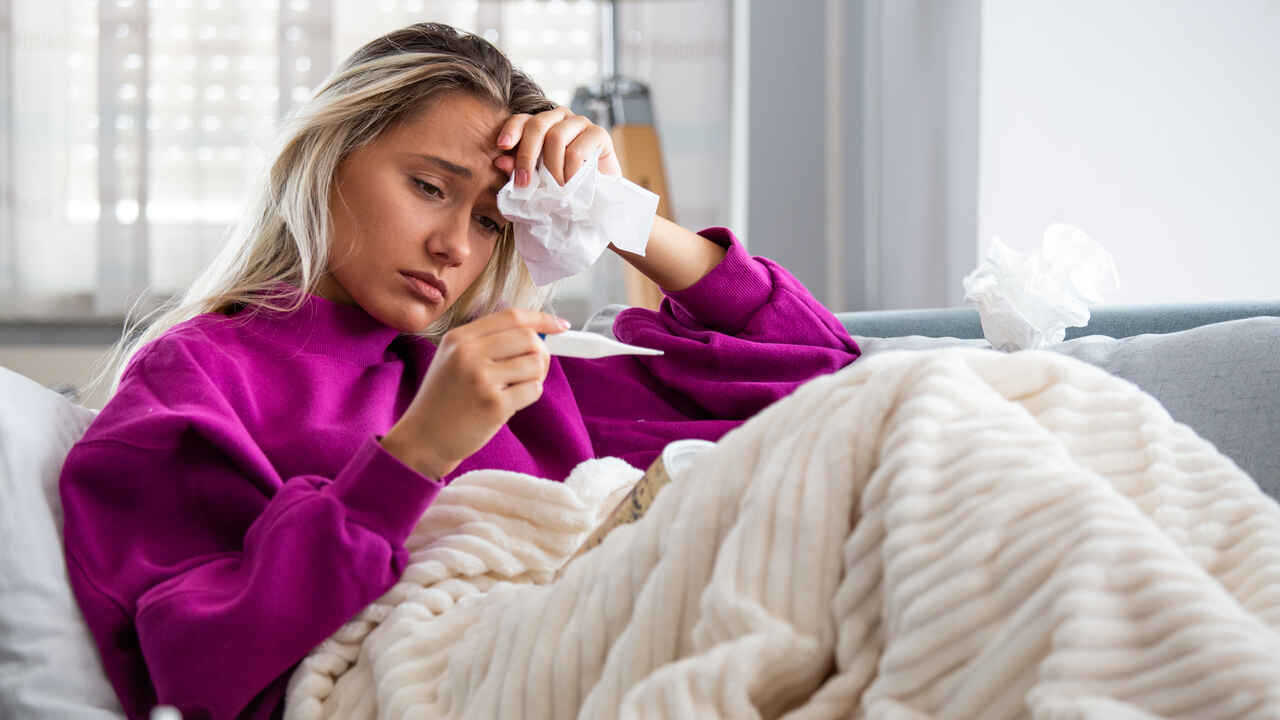 Here are 7 tips to help protect you against COVID-19 and common winter illnesses.
Here are 7 tips to help protect you against COVID-19 and common winter illnesses.
At this time of year, its common to be reminded of how to avoid illnesses like the common cold and the flu. But with COVID-19 still running rampant, there’s a whole other reason to take precautions so you don’t get sick. Especially because it’s hard to tell whether someone who appears ill just has a common cold or if they may be contagious with COVID-19.
Here are 7 tips to help you win the war on germs so you’ll be better protected from the novel coronavirus, as well as the common cold, flu, stomach bugs, bronchitis and pneumonia.
- Wash your hands. Sure, you’ve heard it all before but washing your hands is one of the most effective ways to avoid catching all types of illness. Plain old soap and water are the best way to get rid of germs on your hands. Wash your hands for at least 20 seconds and do it often. If you’re not near a sink, hand sanitizer with at least 60% alcohol is the next best thing.
- Avoid close contact. One of the fastest ways for germs to spread is through direct contact. So do your best to avoid spending time near anyone who is coughing, sniffling or showing other signs of illness. This is standard advice each winter to avoid getting a cold or the flu. Since COVID-19 can even be spread by people who are asymptomatic, staying at least 6 feet from anyone who doesn’t live with you, even if they show no signs of illness, is recommended.
- Wear a mask. A typical list of tips to avoid catching a cold or the flu would not include wearing a mask, but times are not typical. Even though rollout of COVID-19 vaccines has begun, wearing a mask is still one of the best defenses against spread of the virus. Wearing a mask – and wearing it properly over your mouth and nose – protects you and it protects others.
- Use antibacterial wipes. Germs can live on hard surfaces for varying lengths of time, depending on the germ, surface material and other conditions. Use antibacterial wipes on high-touch objects, such as doorknobs, fridge handles, remotes, light switches and phones. Steer clear of things you can’t clean in public areas, such as stair railings, elevator buttons and ATM machines. If you touch something questionable, wash your hands as soon as possible.
- Don’t touch your face. You can become sick by germs that get on your hand if you then touch your eyes, nose or mouth before you wash away those germs. We touch our face far more than we realize throughout the day so try to get in the habit of noticing when you do it – and then working to not do it.
- Get a flu shot. Getting an annual flu shot is one of the best ways to avoid being sidelined with the flu, according to the Centers for Disease Control and Prevention. Even if you do get sick, your symptoms are typically milder if you have gotten vaccinated. This year, health professionals are recommending flu shots to lessen the impact on hospitals dealing with COVID-19 patients. Even though a flu shot won’t stop you from getting COVID, research indicates that it may reduce your risk of serious complications from the virus. If you haven’t already gotten a flu shot, it’s still not too late.
- Keep your immune system strong. Your lifestyle habits can impact how well your body fights off illness. Eat lots of fruits, vegetables and lean protein to strengthen your immune system. Do some physical activity to increase circulation and help your body fight infection. Get enough sleep. One study showed getting less than 7 hours of sleep a night can triple your chances of catching a cold.
Copyright 2020-2021 © Baldwin Publishing, Inc. All rights reserved.
Health eCooking® is a registered trademark of Baldwin Publishing, Inc. Cook eKitchen™ is a designated trademark of Baldwin Publishing, Inc. Any duplication or distribution of the information contained herein without the express approval of Baldwin Publishing, Inc. is strictly prohibited.
Date Last Reviewed: December 17, 2020
Editorial Review: Andrea Cohen, Editorial Director, Baldwin Publishing, Inc. Contact Editor
Medical Review: Perry Pitkow, MD
Learn more about Baldwin Publishing Inc. editorial policy, privacy policy, ADA compliance and sponsorship policy.
No information provided by Baldwin Publishing, Inc. in any article is a substitute for medical advice or treatment for any medical condition. Baldwin Publishing, Inc. strongly suggests that you use this information in consultation with your doctor or other health professional. Use or viewing of any Baldwin Publishing, Inc. article signifies your understanding and agreement to the disclaimer and acceptance of these terms of use.